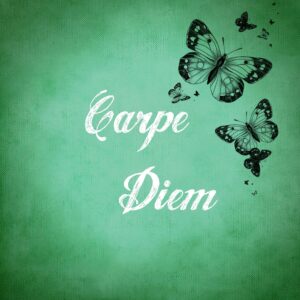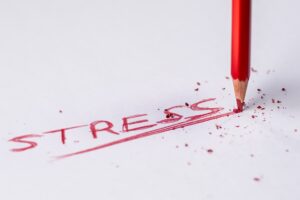 There are times in our lives when everything seems to proceed ahead seamlessly. I think of those times as a state of “flow”, and I cherish the periods of time when they occur. Other times, lets face it; nothing seems to go our way. We get “stuck” in an unfortunate series of events, or just in a space where nothing goes right, in spite of our best efforts.
There are times in our lives when everything seems to proceed ahead seamlessly. I think of those times as a state of “flow”, and I cherish the periods of time when they occur. Other times, lets face it; nothing seems to go our way. We get “stuck” in an unfortunate series of events, or just in a space where nothing goes right, in spite of our best efforts.
I know when I am in this “stuck” place I can very easily go down a rabbit hole of “overthink”. In those moments I feel like there must be some way I can “think” my way through this mess. In reality though, (as I’ve discovered through experience), the “think” method does not work. Instead of finding a “solution” I oftentimes find myself in a Gordian knot of confusion. I am “wound up”, frustrated, and anxious.
Here is something else you can try:
When I find myself in the stuck and anxious place I described above, the first thing I do is just STOP. Literally, I tell myself to STOP. Then I forgive myself because I realize that it is natural to want to “speed up” the mind in order to get this problem solved. After all, it makes sense that the quicker the solution occurs to me, the quicker I can implement it…right? Actually no, it does not work this way.
Try slowing your mind down instead of speeding it up
Here is the thing. If we think of our minds as incredibly busy places with a million different thoughts, feelings, impressions, and memories flooding it at all times…we can imagine how difficult it is just to make the daily decisions we are confronted with. Our minds are like busy intersections right? Thoughts are always competing with each other, so when we crowd our mind up with this new “problem” to solve, the traffic gets jammed up. Our mind needs rest and focus.
The benefit of a consistent meditation practice
What I have discovered, over years of implementing a somewhat consistent meditation practice, is that it is most efficient to stop my “overthinking” mind when I notice it, and set aside 20 minutes to meditate. During this time, I completely relax my body by following the directions of a guided meditation, or listening to relaxing music, and simply “ask” for guidance. This is not necessarily a plea for divine intervention but rather asking for guidance from my own “higher power”.
Then I finish my meditation and I wait patiently. I find when I do this that the answer will often “float up” from my subconscious. It will seem miraculous but in fact…it’s just my brain operating at maximum efficiency.
The key is to be patient.
Paul McCartney references this kind of patience beautifully in his song, “Let It Be”
“When I find myself in times of trouble, Mother Mary comes to me”
“There will be an answer. Let it be…. Let it be.









